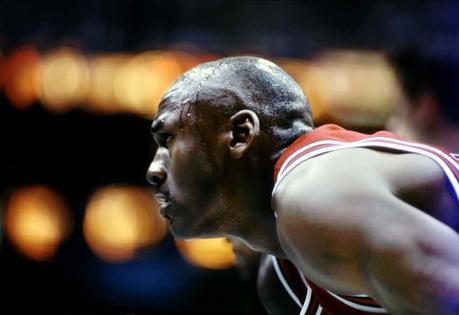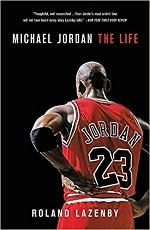 Allstar Picture Library / Alamy Stock Photo
Allstar Picture Library / Alamy Stock Photo
For nearly two decades, Michael Jordan’s talent, unrelenting competitive desire, and work ethic cut swaths across the NBA. Jordan led the Chicago Bulls to six NBA titles, ten scoring titles, and countless individual and team accolades.
But before Jordan’s Bulls ascended to the pinnacle of the NBA landscape, before they would ever put on their first championship ring, there was the Bad Boys of basketball, the Detroit Pistons.
The Pistons’ game plan was simple. Play Jordan as physical as possible, force outside shots, and make his teammates win the game.
Anytime Jordan cut to the basket, he got bodied. When Jordan got the ball, the forced him to the wings to take lower percentage outside shots. The “Jordan Rules” also purposely gave Jordan more room to operate in the first three quarters of the game before launching full pressure at him in the fourth, which forcing Jordan’s “cold” teammates to have to shoot in pressure situations.
In 1990, the Bulls were surging. But again, the Pistons handed the Bulls an early playoff exit. In the seventh game of the series, the Pistons blew out Jordan and the Bulls, in a game that coach Phil Jackson recalled as his “worst moment as a Bull.”
With Scottie Pippen on the bench battling a migraine, Jordan tried to do it all and ran head-on into the Pistons suffocating defense.
In Roland Lazenby’s definitive biography of Jordan, Michael Jordan: The Life (Amazon Print | Audiobook), Lazenby outlined the frustration in the aftermath of another painful loss.
And it provided a great insight into how champions react to adversity, even in the throes of extreme disappointment and anguish.
Furious with his teammates, Jordan cursed them yet again at halftime, then sobbed in the back of the team bus afterward. “I was crying and steaming,” he recalled. “I was saying, ‘Hey, I’m out here busting my butt and nobody else is doing the same thing. These guys are kicking our butt, taking our heart, taking our pride.’ I made up my mind right then and there it would never happen again. That was the summer that I first started lifting weights. If I was going to take some of this beating, I was also going to start dishing out some of it. I got tired of them dominating me physically.
Iron sharpens iron
Over the summer, Jordan started working with Tim Grover, a strength trainer, and began the process of adding an additional 15 pounds of muscle to his lanky frame.
Instead of suffering another failure, he would use the frustration and anger to become stronger.
The following year, Jordan and his newly-confident (and muscular Bulls) would thoroughly dominate the Detroit Pistons, sweeping them in four games on the way to the franchise’s first NBA title and the first of six championships.
A legacy that wouldn’t have been possible had Jordan not been willing to learn from his losses.
Jordan understood that there was a glaring weakness in his game, a soft spot that could be exploited. And the anger and disappointment he experienced after another playoff loss to the Pistons was enough to fuel his desire to commit to doing something about it.
To tackle his weaknesses. To make one of the weaknesses in his game a strength.
What athletes can learn from Jordan using losses and adversity as fuel
Losing hurts. There is no doubt about that. When you are invested in a performance, whether it’s in the gym, in the pool, or in the classroom, and it goes poorly and disastrously, it’s natural to feel sad and disappointed.
But if you step back from the dwelling for a moment, you will see that adversity is a gift.
It’s a clear-cut signal that you need to improve and what you need to do to get better.
Adversity informs progress.
Learn from adversity.
Setbacks, missteps, all the rest—they happen to us all. Everyone. You, me, the Jordans of the world—no one is exempt from trials and tribulations.
But what often separates champions from the almosts is the ability to soak up the lessons that are available with every loss and failure.
Evaluate. Learn. Apply.
What can this adversity teach you? How can you be better? What are the specific things you can improve upon?
Use the adversity as fuel.
Champions don’t avoid having chips on their shoulders. It’s often the thing that drives them. When told they can’t do something, it just adds fuel to their motivational fire.
When the Bulls overcame the Pistons the following year, sweeping them in the Eastern Conference Finals, Jordan admitted that finally besting their rival was in many ways more satisfying than winning the NBA Finals later on.
The motivator during the off-season, during that year, had been putting the Pistons and the misery of those losses behind them.
Adversity and losses are a powerful motivational tool. Use them.
On days where you are tired, feeling down, frustrated with a lack of progress—use the stinging memory of your losses like a cattle prod to get you back into the champion’s mindset.
 Where to Buy Michael Jordan: The Life
Where to Buy Michael Jordan: The Life
You can pick up a copy of Michael Jordan: The Life by Roland Lazenby over at Amazon (print) and the audiobook at Audible.
Looking for more motivation? Check out this list of my favorite mental toughness books for athletes.
